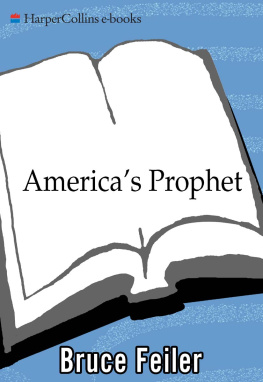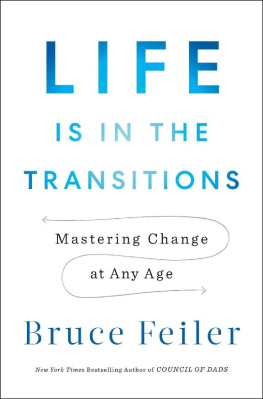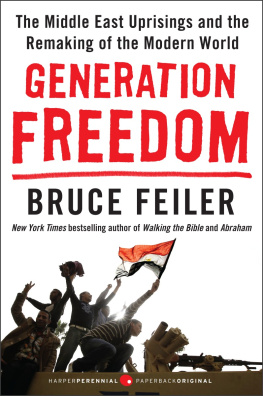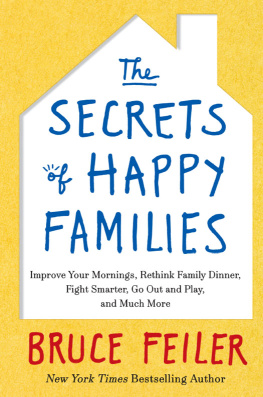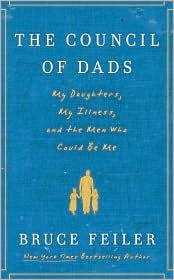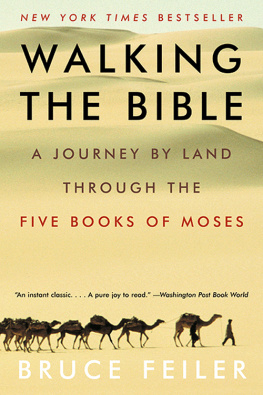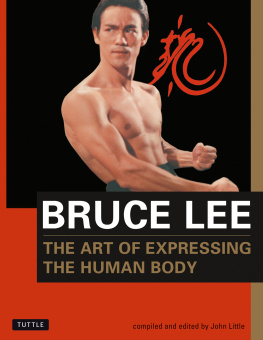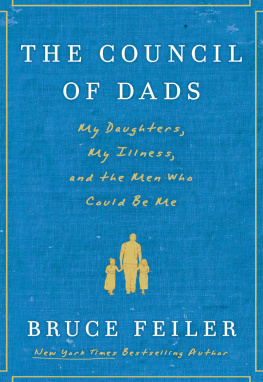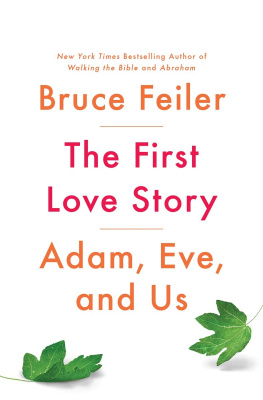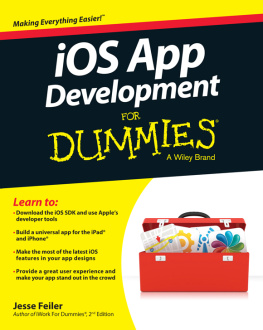Bruce Feiler - Americas Prophet
Here you can read online Bruce Feiler - Americas Prophet full text of the book (entire story) in english for free. Download pdf and epub, get meaning, cover and reviews about this ebook. year: 2009, publisher: HarperCollins e-books, genre: History / Science. Description of the work, (preface) as well as reviews are available. Best literature library LitArk.com created for fans of good reading and offers a wide selection of genres:
Romance novel
Science fiction
Adventure
Detective
Science
History
Home and family
Prose
Art
Politics
Computer
Non-fiction
Religion
Business
Children
Humor
Choose a favorite category and find really read worthwhile books. Enjoy immersion in the world of imagination, feel the emotions of the characters or learn something new for yourself, make an fascinating discovery.
- Book:Americas Prophet
- Author:
- Publisher:HarperCollins e-books
- Genre:
- Year:2009
- Rating:5 / 5
- Favourites:Add to favourites
- Your mark:
- 100
- 1
- 2
- 3
- 4
- 5
Americas Prophet: summary, description and annotation
We offer to read an annotation, description, summary or preface (depends on what the author of the book "Americas Prophet" wrote himself). If you haven't found the necessary information about the book — write in the comments, we will try to find it.
Americas Prophet — read online for free the complete book (whole text) full work
Below is the text of the book, divided by pages. System saving the place of the last page read, allows you to conveniently read the book "Americas Prophet" online for free, without having to search again every time where you left off. Put a bookmark, and you can go to the page where you finished reading at any time.
Font size:
Interval:
Bookmark:
Moses and the American Story

For Debbie and Alan Rottenberg
Next year with you
T HANKSGIVING IS THE mandatory holiday in my family. Its the one time of year when we clear our calendars, pack up gifts, and travel across the country for a ritual that is one part Americana, one part Hanukkah, one part nostalgia. The event begins when my mother polishes dozens of apples, pears, pomegranates, and kumquats and arranges them with a pumpkin, some Indian corn, and cranberries to create a cornucopian centerpiece. It continues with Thanksgiving dinner, a mix of trendy roasted this and that along with some embarrassing 1950s classics we love, notably a hot fruit compote made with five different kinds of canned fruit baked with macaroons and sherry. During the meal, in a custom that makes me cringe yet always seems to work, my sister insists that we go around the table and say why we are thankful. The weekend concludes with an early celebration of Hanukkah, the Jewish festival of lights. Its a classic American event, a mix of church, state, shopping, and turkey.
Passover is the equivalent holiday for my in-laws. Every spring, my mother-in-law hosts thirty-five people on one night and a different thirty-five people the second night for a ritualized retelling of the Israelites escape from slavery in Egypt. The food is equally ritualized: chicken soup with matzoh balls; gefilte fish with hot pink horseradish sauce; Debbies tasty brisket with carrots and potatoes; and Auntie Barbaras Jell-O mold with, yup, canned fruit. Passover is so important to my in-laws that when they expanded their home some years ago they redid not their bedroom or bathroom but their dining room, just for these two nights a year. The centrality of these two holidays to our respective families is such that when my mother met my future mother-in-law for the first time they retreated into a corner and came out a few minutes later with smiles on their faces: The Feilers would get Thanksgiving; the Rottenbergs would get Passover.
Though it took me a while to realize it, discovering the unexpected bridge that links these two holidays would occupy the coming years of my life.
Before attending my first Passover with my in-laws, I warned them that I would make the worlds most insufferable seder guest. I had just returned from a yearlong journey through the Middle East, in which I actually crossed the likely Red Sea, tasted manna, and climbed the supposed Mount Sinai. In the liturgical list of Four Sons included in the seder service, I would surely be the Pedantic One. In ensuing years, I continued my biblical wanderings, traveling through Israel, Iraq, and, with my bride, Iran. A honeymoon in the Axis of Evil, she called it. A year later she gave birth to identical twin girls: Eden, for the Garden of Eden; and Tybee, for the beach near Savannah where I grew up and where we celebrated our wedding. They seemed like emblems of our lives: ten toes in the Middle East, ten toes at home.
One theme of these travels was exploring the explosive mix of religion and politics. But I realized upon returning that the front line of that battle had migrated back home. The United States was involved in its own internal war over God that in many ways mirroredand in some cases fedthe wars being waged in the Middle East. The buzzwords only hinted at the battle lines: left/right, red/blue, believer/nonbeliever, extremist/moderate.
These tensions were reflected in all the usual places of modern discoursethe ballot box, the call-in show, the Bible study, the book group. Yet they were most acute at home. So many of the laments I heard about religion were variations on a theme: I cant talk to my brother about it without getting into a fight. My father is a Neanderthal. My daughter is making a big mistake. He doesnt understand what made this country great. With greater mobility and more choices, we no longer passed down religion seamlessly from one generation to the next. Nearly half of Americans change religious affiliations in their lives, a Pew study concluded. Stuck with our parents genes, we seemed less interested in being burdened with their God as well. And we certainly didnt want to talk to them about it.
Thanksgiving, the symbol of American blessing, the one holiday that marked the union of God, the people, and the land, had, for many families, become a minefield of fraught conversation.
Around this time I began noticing something else. On a trip to visit my in-laws on Cape Cod, we stopped off in Plymouth and I took a tour of the Mayflower II . A reenactor was reading from the Bible. Exodus fourteen, he explained. The Israelites are trapped in front of the Red Sea, and the Egyptians are about to catch them. The people complain, and Moses declares, Hold your peace! The Lord shall fight for you. Our leader read us that passage during our crossing. Moses, on board the Mayflower.
On a trip to visit my parents in Savannah, I stopped off at my childhood synagogue. A letter from George Washington hangs in the lobby, sent after his election to the presidency: May the same wonder-working Deity, who long since delivered the Hebrews from their Egyptian oppressors, planted them in the promised land, whose providential agency has lately been conspicuous in establishing these United States as an independent nation, still continue to water them with the dews of Heaven. Exodus, on Washingtons pen in the first weeks of the presidency.
On a trip to visit my sister in Philadelphia, we went to see the Liberty Bell. The quotation on its face is from Leviticus 25, which God gave to Moses on Mount Sinai: PROCLAIM LIBERTY THROUGHOUT ALL THE LAND UNTO ALL THE INHABITANTS THEREOF . The law of Sinai, in the bell tower where the Declaration of Independence was signed.
In coming weeks, I found a similar story over and over again. Columbus comparing himself to Moses when he sailed in 1492. George Whitefield quoting Moses as he traveled the colonies in the 1730s forging the Great Awakening. Thomas Paine, in Common Sense, comparing King George to the pharaoh. Benjamin Franklin, Thomas Jefferson, and John Adams, in the summer of 1776, proposing that Moses be on the seal of the United States. And the references didnt stop. Harriet Tubman adopting Moses name on the Underground Railroad. Abraham Lincoln being eulogized as Moses incarnation. The Statue of Liberty being molded in Moses honor. Woodrow Wilson, Franklin Roosevelt, and Lyndon Johnson tapping into Moses during wartime. Cecil B. DeMille recasting Moses as a hero for the Cold War. Martin Luther King, Jr., likening himself to Moses on the night before he was killed. The sheer ubiquity was staggering and, for me, had been completely unknown.
For four hundred years, one figure stands out as the surprising symbol of America. One person has inspired more Americans than any other. One man is Americas true founding father. His name is Moses.
For two years, I traveled to touchstones in American history and explored the role of the Bible, the Exodus, and Moses in inspiring generation after generation of Americans. I examined how American icons of different erasfrom the slave girl Eliza carrying her son to freedom across the Ohio River in Uncle Toms Cabin to an orphaned Superman being drawn out of a spaceship from Kryptonwere etched in the image of Moses. And I probed the ongoing role of Moses today, from the Ten Commandments in public places to the role of the United States as a beacon for immigrants. Even a cursory review of American history indicates that Moses has emboldened leaders of all stripespatriot and loyalist, slave and master, Jew and Christian, fat cat and communist. Could the persistence of his story serve as a reminder of our shared national values? Could he serve as a unifying force in a disunifying time? If Moses could split the Red Sea, could he unsplit America?
Font size:
Interval:
Bookmark:
Similar books «Americas Prophet»
Look at similar books to Americas Prophet. We have selected literature similar in name and meaning in the hope of providing readers with more options to find new, interesting, not yet read works.
Discussion, reviews of the book Americas Prophet and just readers' own opinions. Leave your comments, write what you think about the work, its meaning or the main characters. Specify what exactly you liked and what you didn't like, and why you think so.

